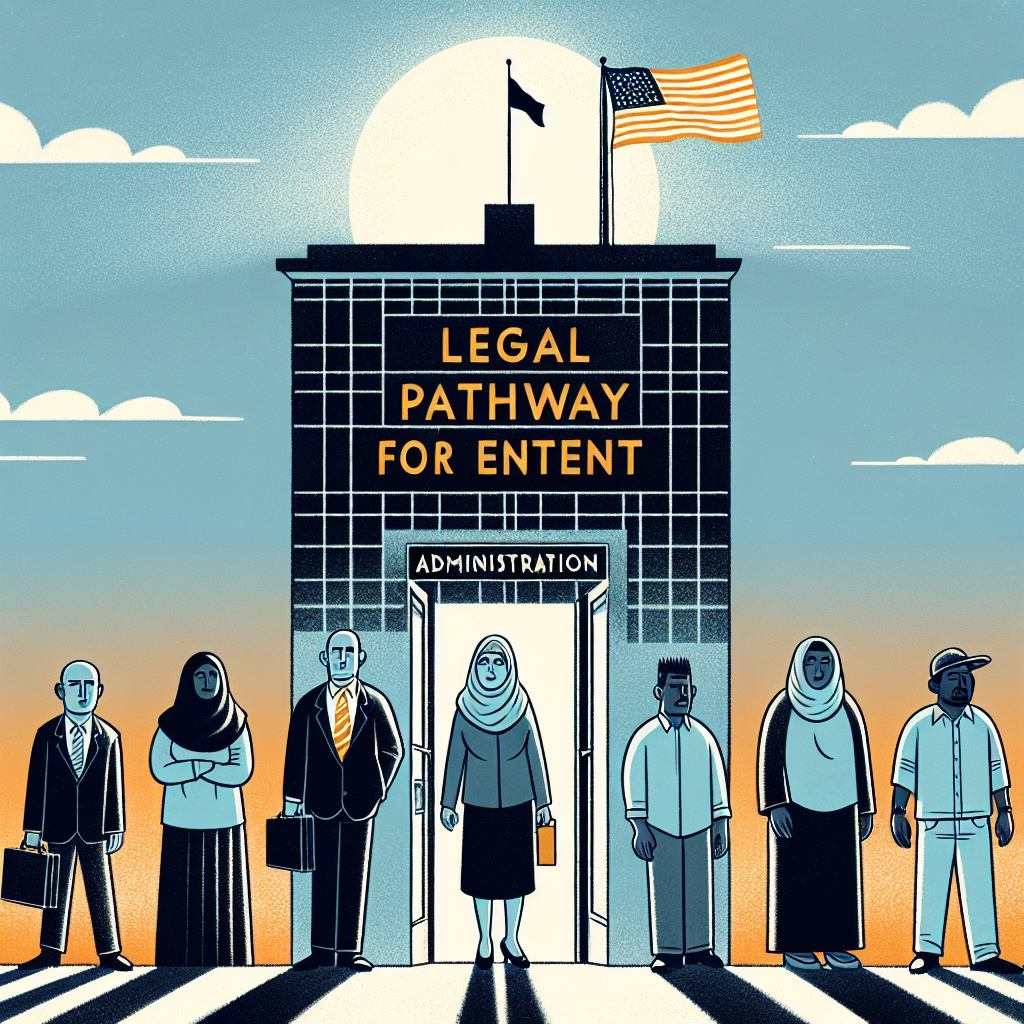In recent discussions surrounding immigration and border security, a significant disconnect has emerged among major institutions in the United States, including the media, politicians, and corporate entities. Many of these organizations remain silent on the increasing influx of illegal immigrants, some of whom are violent criminals, while simultaneously profiting from their presence. An example highlighted in a personal account reflects concerns about safety and trust within communities, evidenced by an unsettling incident involving delivery workers from Venezuela who took unauthorized photographs of a residence. The implications of such acts contribute to a growing sentiment that America’s safety is under threat due to inadequate border control and the rise in illegal immigration across various sectors of society.
Criticism has been aimed squarely at the Biden-Harris administration, which, according to observers, has prioritized political agendas over public safety. Many believe that recent immigration policies, particularly the expansion of legal entry routes via the controversial CBP One app, have allowed individuals with questionable backgrounds into the country without proper vetting. This has been compounded by reports of criminal incidents involving new arrivals, suggesting that the administration’s leniency has resulted in increased danger for American citizens. High-profile cases of violent crimes linked to illegal immigrants have led to alarming conclusions about the consequences of unregulated immigration.
The surge in migration, especially in areas not traditionally associated with such issues, has prompted warnings from local officials. For instance, North Dakota’s attorney general indicated a pronounced increase in migrant encounters that would inevitably lead to greater street crime and potential threats to national security. The statistics speak volumes, with migrant encounters more than doubling year on year, painting a dire picture of border security failure and the pressure it places on law enforcement and local communities. This situation begs a deeper examination of how federal immigration policies impact smaller and often less equipped jurisdictions.
Specific cases emerging from various parts of the country underline the tension between immigration policy and public safety. Incidents of murder, high-profile shootings, and gang-related activities attributed to recent migrants illustrate the perilous intersection of these two critical issues. Law enforcement entities struggle to manage the fallout of policies that, while intended to provide refuge, may inadvertently foster an environment conducive to crime. Reports of gangs such as Tren de Aragua expanding their influence in urban areas, alongside mounting evidence of violent crimes, highlight the profound challenges facing American society in the wake of these immigration patterns.
The discourse surrounding immigration extends beyond policy into the political realm, with accusations that current administration figures are facilitating the entry of unauthorized individuals to bolster party influence. This narrative is bolstered by concerns over the repercussions for political stability as electoral cycles approach. The idea that vulnerable immigrants could be exploited for their votes, despite the continued chaos surrounding border security, reflects a concerning trend in how politics can influence critical national issues. The concept of cronyism within political circles raises questions about the motivations driving these policies and the long-term ramifications for democracy and governance.
Opposition voices express that the current trajectory extends beyond immigration concerns, echoing fears of impending international conflict exacerbated by endemic political corruption. Calls for accountability across the spectrum of leadership emphasize a lack of genuine concern for citizen safety and highlight the potential consequences of unchecked government decisions. The narrative surrounding global conflicts, particularly concerning U.S. foreign policy and relationships with nations like Israel, serves as a backdrop to a broader critique of leadership intentions, suggesting a trajectory of hostility that could further compromise domestic stability. The fear is that an escalation in aggression could ultimately lead to catastrophic international consequences, culminating in a real possibility of nuclear conflict.
In sum, the current immigration crisis in the United States underscores a complex narrative involving safety, public policy, and political motivations. The precarious state of border security points to inefficiencies that have fostered criminality and placed communities at risk. The dual pressures of increasing migration and global political tensions render this issue not only a domestic challenge but a potential catalyst for broader conflict, demanding urgent attention and action from policymakers at every level. Addressing these concerns with sincerity requires a level of introspection and accountability often absent in today’s political landscape, suggesting that the responsibility for safeguarding American interests has never been more urgent.

